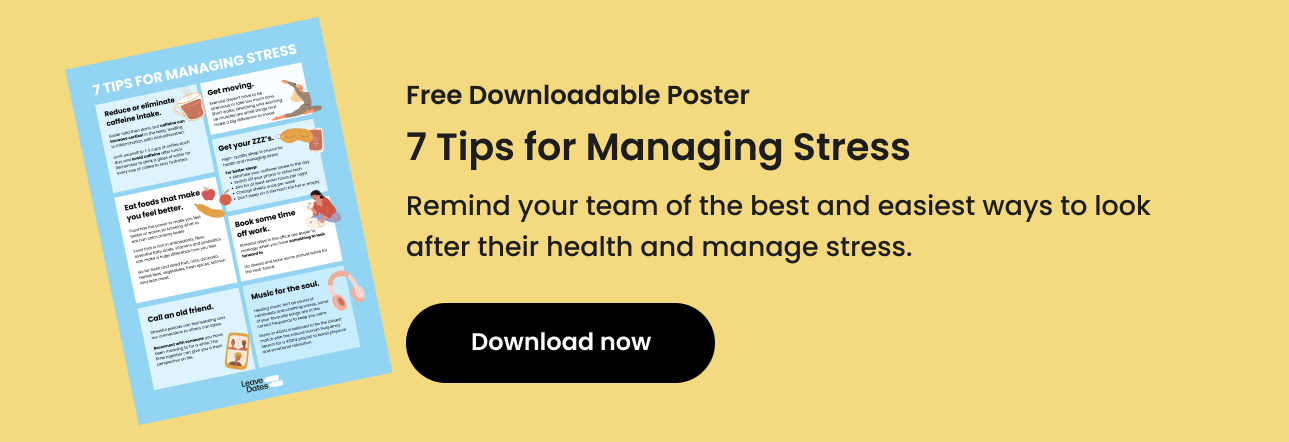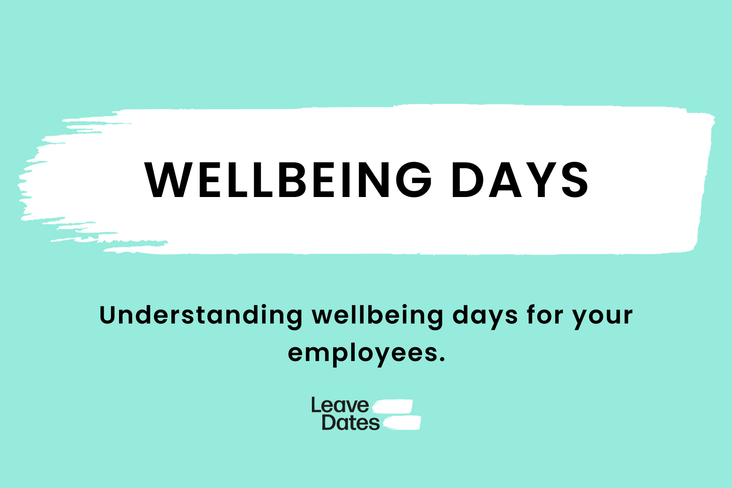Chronic stress is a popular topic these days, but it is certainly not just a ‘buzzword’; the condition negatively impacts most people’s health. In the UK, record numbers of people say that they often feel stressed by issues at work. That stress can rapidly impact other vital areas of life.
April is Stress Awareness Month, a great opportunity to remember how stress impacts our minds and bodies at various times. The month also allows businesses to spread awareness and create measures to support staff dealing with stress.
How does stress affect us?
When we have an episode of stress, our adrenal glands overproduce cortisol, creating a ‘fight or flight’ response. The thought of this alone feels stressful, but it is a crucial function that helps us cope when we need it most. When stress is chronic and long-lasting, and our minds feel stuck in a fight or flight loop, this can lead to what feels like an endless cycle of physical and mental illnesses.
Physical signs of stress can include:
- Rapid heart rate and changes in blood pressure
- Poor immune system
- Headaches and muscle tension
- Stomach discomfort and digestive issues, as well as a change in appetite
- Flare-up of skin conditions, acne, eczema and psoriasis are common
- Sleep issues, including insomnia, sleep pattern disruption or needing to sleep constantly.
If left untreated, chronic stress can lead to one or more life-threatening conditions, including depression, heart disease, diabetes and cancer. Simply put, no prolonged stress is worth the effects, and creating awareness can save lives.

A YouGov survey conducted by Mental Health UK found that 1 in 5 adults feel that they need to take time off work due to excess pressure and stress; they have hit the point they would describe as ‘burnout’.
Burnout occurs when a person feels physically, mentally, and emotionally exhausted due to prolonged stress. Stress is characterised by overwhelming instances or events, a natural response to demanding situations. However, if these situations compound over time, it will lead to chronic stress and burnout.
It can be hard to pinpoint the initial cause, as the person experiencing burnout has often been juggling difficult circumstances for a long time. Sadly, burnout impacts every area of a person’s life, from work to relationships and home, resulting in a withdrawal from social activities and neglecting self-care. When this happens, naturally, the person experiences a low sense of self-worth and finds it challenging to begin their recovery.
How to manage stress in the workplace
As a business leader, creating a workplace that minimises stress and promotes work-life balance is a badge of honour. It leads to a happy, healthy, and productive team, and if you’re like our customers at Word Monster, you could win an award for your efforts. Great Place to Work recently recognised them among the UK’s top 15 workplaces in 2023 for their commitment to their team’s balanced work-life. Flexible working, open communication, fantastic team culture, and leave benefits that go above and beyond statutory requirements contributed to this prestigious honour. Congratulations again to them.
So, what does it take for your business to be a great workplace?
A commitment to health and happiness for your team is a great start and a good business move. Work-life balance continuously pops up as workers’ top priority when looking for and staying in a position, frequently beating pay for the top reason a company will attract or retain great talent.
There are many ways to ensure your workplace is a stress-free zone that supports wellbeing:
- Encourage open communication that lets your team feel sure they have someone they trust and can talk to with personal or work-related concerns.
- Celebrate successes, big and small. A little recognition can be like rocket fuel for your team members, especially for somebody who is struggling with invisible mental health issues. Give honest, positive feedback at every opportunity, even if it is just something you think is small, and you can pick someone out of a rut.
- Encourage staff to book annual leave, giving them time to rest and make memories with family and friends.
- Focus on solutions, not blame. As a leader, you are looked upon to craft solutions to problems with the help of your team. When issues arise, reinforce your staff’s trust in you by focusing on a solution.
- Manage workload by distributing and delegating duties fairly, based on skill set and capabilities. Remember to set realistic deadlines and be flexible wherever possible.
- Promote stress management by offering healthy food or opportunities for exercise in the office.
Many companies are now adopting Employee Assistance Programs as a confidential resource for employees who need help and counselling beyond the scope of their managers and coworkers.
Taking time off work to manage and prevent stress
Stress leave is available to workers in the UK. Still, as the name suggests, it is used when a stress-related event has already occurred. Under the Health and Safety at Work Act 1974, employers have a duty of care to their staff to ensure they don’t reach this point. Stressful situations should be avoided as much as possible to protect everyone. Annual leave, unpaid leave or other leave types relevant to the individual’s circumstances may be a helpful tool to ensure team members don’t burn out.
Encouraging your staff to use all of their leave seems like an obvious way to avoid stress and burnout, but employers and employees often overlook it. In the UK, only 1 in 3 people use all of their annual leave each year, and with a figure that low, it is no wonder people across the country feel stressed and exhausted.
How to spot staff who are at risk of burnout
If you believe that your team aren’t using all of their leave entitlements and may be at risk of burning out, use your leave management system or HR platform to generate a report on each person’s annual leave usage. Find out from your report who has yet to book or take time off, and encourage them to make some plans while the year is still young. If you create reports for several years, you may spot some team members who haven’t taken all their leave over a longer period.
When someone hasn’t taken much leave, it may be a sign that they need more support. Perhaps they feel that their tasks are complex to hand over or that their time off would make them fall behind in their workload. If these factors are possible, addressing them and giving your staff peace of mind that they can switch off and enjoy their life outside of work is vital.

Final thoughts
A healthy team is good for business. Chronic stress is a complex and serious issue, and its impacts are far-reaching for employers and their staff. Businesses with a culture that is openly dedicated to the health of their teams have a much greater chance of keeping talented and hard-working people long-term. Some of the best things you can do to avoid burnout in the workplace are open communication, an excellent work-life balance, effective workload management and taking time off work consistently. Leaders should also be aware of and recognise the signs of stress and burnout in their team members and have a plan for taking proactive measures.
Visit Mental Health UK if you need support with stress or burnout or would like resources for your business to manage it.




